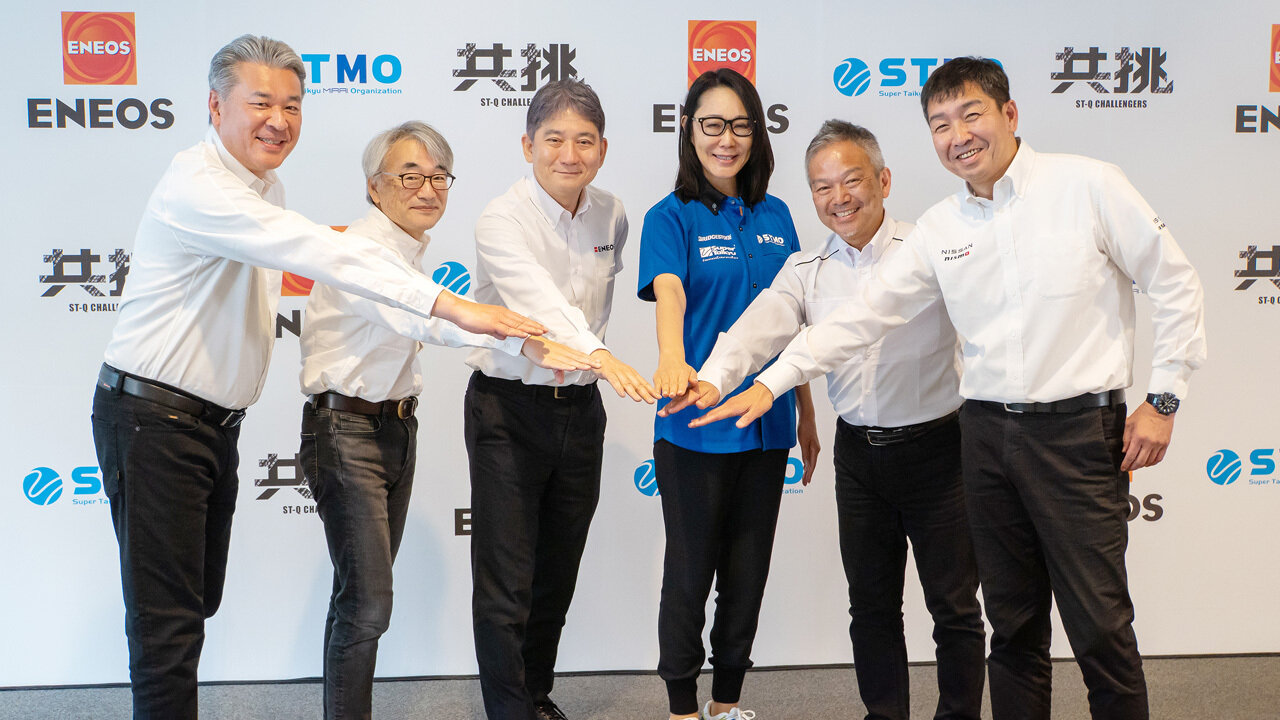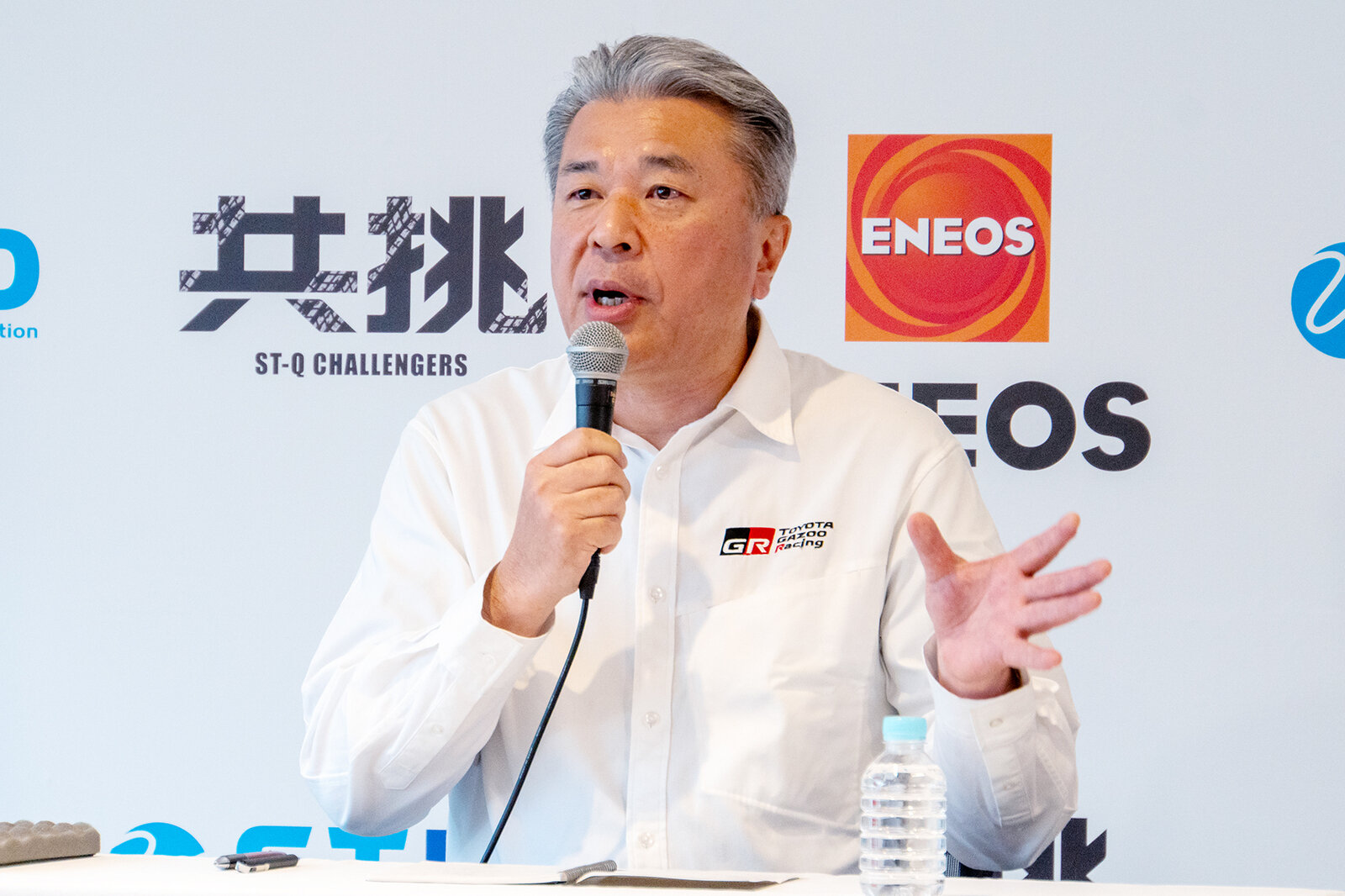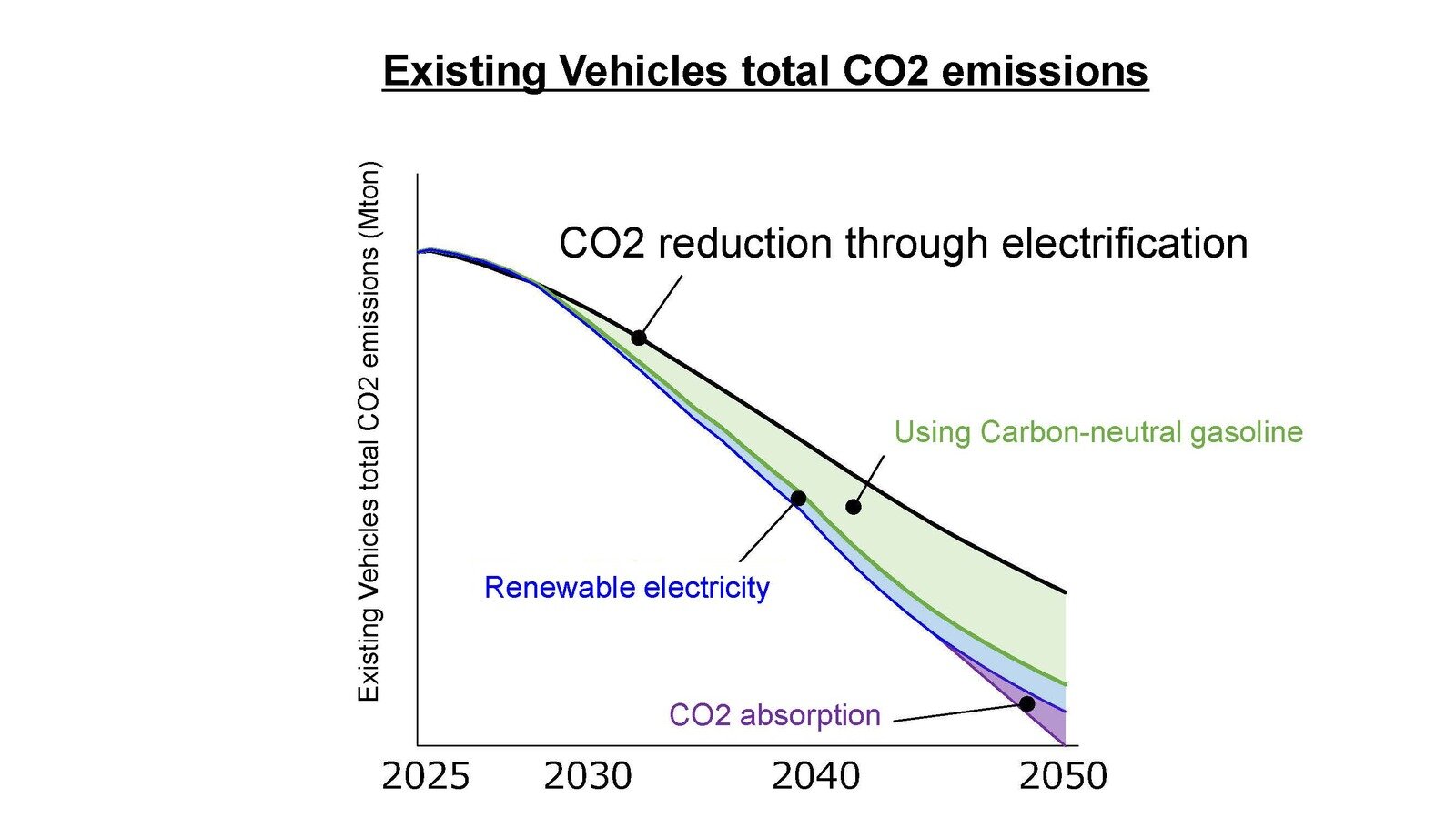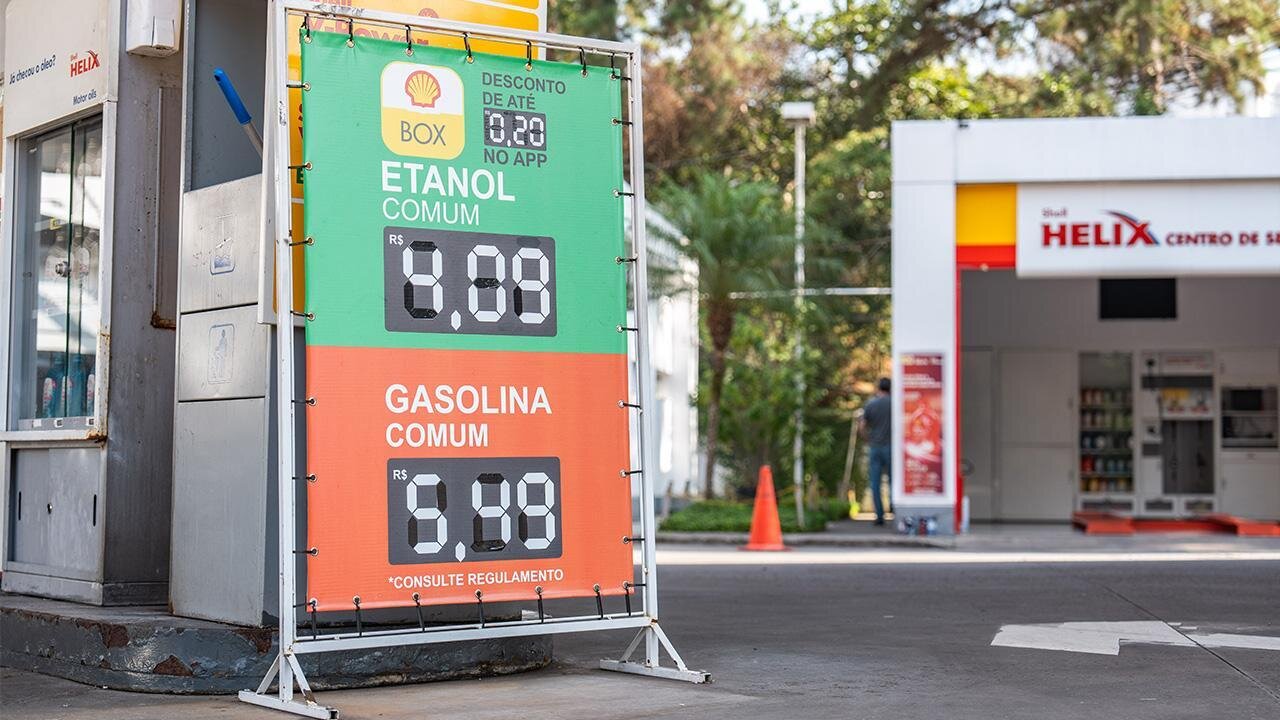
At the Super Taikyu Fuji 24 Hours, an all-Japan force of fuel and car manufacturers announced the development of a low-carbon gasoline. During the press conference, the companies emphasized the importance of a multi-pathway approach that includes liquid fuels.
Carbon-neutral fuels essential despite electrification
Vice President Hiroki Nakajima (Toyota) explained that, for automakers, one challenge is the need to decarbonize not only new vehicles, but also those already on the road.
Vice President Nakajima (Toyota)

ENEOS has supplied us with a valuable low-carbon fuel here in Super Taikyu, which the automobile companies will use to carefully develop our vehicles.
This is a very big step, and we keenly recognize the significance of this undertaking.
I would also like to touch on some of the challenges from the automakers’ perspective. In the graph below, the vertical axis tracks CO2 emissions from Toyota cars, including those already on the roads, while the horizontal shows our plans for working toward carbon neutrality in 2050.

The CO2 figure on the vertical axis is calculated using the “well-to-wheel” method, which includes emissions generated during the production of fuel or electricity.
Although electrification will cause CO2 emissions to steadily decline, when you factor in existing vehicles, we recognize that carbon-neutral fuels will be necessary to account for non-electric cars, the area shaded in green.
At the same time, the auto industry must help to reduce CO2 emissions by making greater use of renewable energy in charging electric vehicles, and finally also capturing the CO2 itself.
While I can only speak for Toyota, this is the approach with which we hope to achieve carbon neutrality by 2050.
We want to make it clear that, regardless of progress in electric vehicles, these carbon-neutral fuels will be absolutely essential from the perspective of existing cars.
Biofuels hold the balance of power
Vice President Nakajima (Toyota)
Next, I would like to look outside Japan. Brazil is often cited as a country that makes good use of biofuels.
They do so through flex-fuel vehicles (FFVs). On the left side of this photo, a sign shows the actual prices at a gas station in a Brazilian city.

The top price is for ethanol, and the bottom is gasoline, with the ethanol blend fuel being the cheaper option.
Brazil’s government provides substantial subsidies and actively promotes carbon-neutral fuels to boost widespread uptake.
Beginning with the Prius, Toyota is also working to further improve fuel efficiency by offering hybrid versions of various FFV models.
It is said that these developments will continue to spread beyond Brazil to countries in Asia.
While we may be talking about a transitional period, I hope you will appreciate that, if we look more broadly and take in emerging countries around the world, these biofuels hold the crucial balance of power.
Together with the other manufacturers—including Honda, which is not taking part today—we want to make full use of the fuel supplied by ENEOS in order to help our customers and the auto industry achieve carbon neutrality. We look forward to your support as we take on this challenge.

